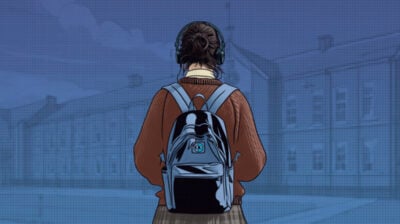4 ways to improve your critical thinking
Critical thinking is so important these days when there is so much information available to us.

Space has always fascinated me. The vast emptiness in which we spin through blackness for eternity. It’s eerily beautiful and frightening. You may remember from school that we orbit around the Sun as does the, ahem dwarf-planet Pluto (this is a touchy subject). The Earth is the third planet from the Sun and Pluto is the furthest, decently large, celestial body from the Sun. So, if you were trying to send a rocket to hit the Sun, you would imagine that it would be easier to do so from Earth, seeing as we are so much closer.
If I told that it was more difficult to send a rocket from Earth and hit the sun than to send a rocket from Pluto and hit the sun, you probably wouldn’t believe me. You would immediately tell me that I was being ridiculous, that it didn’t make sense at all and couldn’t possibly be true. However, it is indeed one hundred percent true. It’s more difficult to hit the sun from planets which orbit nearer the sun. We on Earth orbit the sun at around 30km/s. For us to be able to hit the sun with our rocket, it would need to first counteract that lateral velocity before we’d have any chance of succeeding. Compare this to Pluto’s velocity of 5km/s and you see that it’s surprisingly easier from afar. Your likely reaction of doubt is good. It’s a counterintuitive statement. It’s designed to catch you out. Your reaction is that of critical thinking.
Critical thinking is defined as objective analysis and evaluation of an issue in order to form an opinion. What does this mean? It means gathering all relevant information and understanding an issue or topic to the point where you can form an opinion on it. This is an important skill to have in your life. As someone who has a love for and studies science, I strive to be reasonably critical of any new information I come across. It’s not a life skill that’s intrinsic to us, it’s a learned skill, through continued thinking, reflection, information gathering and forming your own opinion. In modern times, data, information and statistics are used quite liberally though avenues such as Facebook, Twitter and even news sources, which we think to be reputable. Often however, when you further examine this information you find that it’s either incorrect, misinterpreted or misrepresented.
So, how do we improve our capacity to apply logic and think critically of things?
Firstly, question everything! When we are young (and your parents will attest to this) you asked constant questions. Children are naturally curious about the world around them. They want to know more and more and are rarely satisfied with your first answer. They will continue to dig with their “whys” and “hows.” Somewhere along the way we lose this originally intrinsic curiosity. You should ask questions, you should want to find out information.
Secondly, following on from the first, ask the opinions of people on a topic. I am no expert on anything. Therefore, when I need to find out something, I’ll often turn to my peers first. Be it my friends, my lecturers, my coaches – ask someone who may have the knowledge. You should never be afraid of not knowing. There is no such thing as a stupid question. The only stupid question is the unasked one.
Thirdly, become aware of your own mental processes. This can be a bit strange when you first become aware of it but is one of the most important things you can do. We all have certain biases. That’s ok! It’s part of our individuality. The problems arise when our bias clouds our judgement and decision making. Being self-critical is important and can help you to see other viewpoints and opinions. Skills like this are important for diplomatic and fair arguments. As well as that, exploring others viewpoints can help you to make much more informed decisions.
Finally, review the existing information with a fine-tooth comb. You should ask questions like, “Who gathered the information?”, “Why was the information collected?”, “How was the survey etc conducted?”. You should evaluate new information critically to prevent reaching an incorrect conclusion. Imagine you see a new report that a new extra sugary cereal has great health benefits. However, when we examine who the survey was conducted by, we see it was funded by the cereal company itself. Therefore, you should have some healthy scepticism when it comes to the report.
In conclusion, critical thinking is a skill I wish was instilled in every one of us from birth. Unfortunately, it’s not and we must learn through thinking, asking questions and reflection. We should all try and improve our skills in this area which can in turn help us become better people. From science, to business, to politics, everyone should review all the information they come across and it’s always important to remember that others are not infallible. A statement I love is an old Irish saying. It says, “Doras feasa fiafraí” which means, “The door to wisdom is to ask questions.” Stay curious and stay critical.






